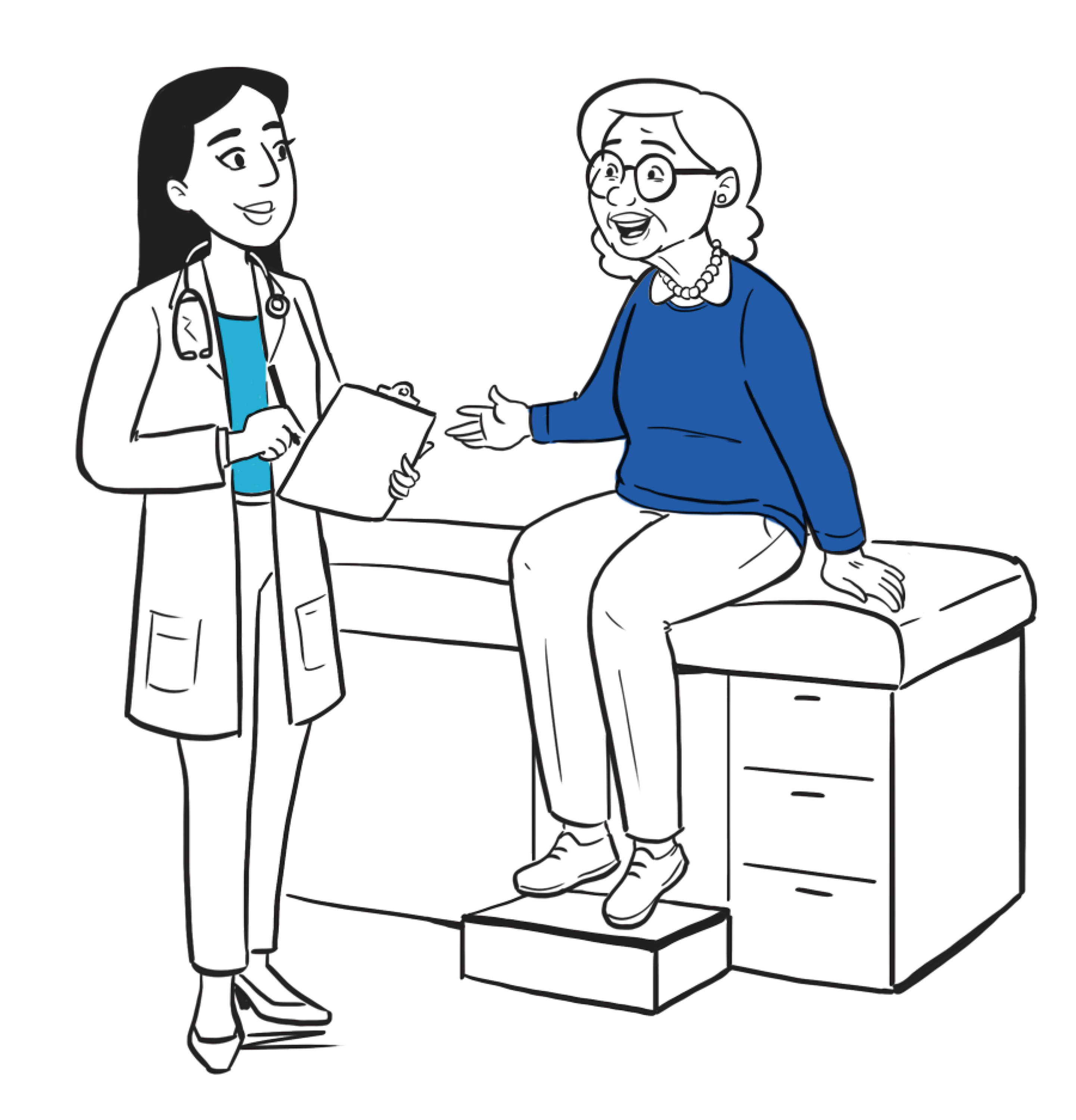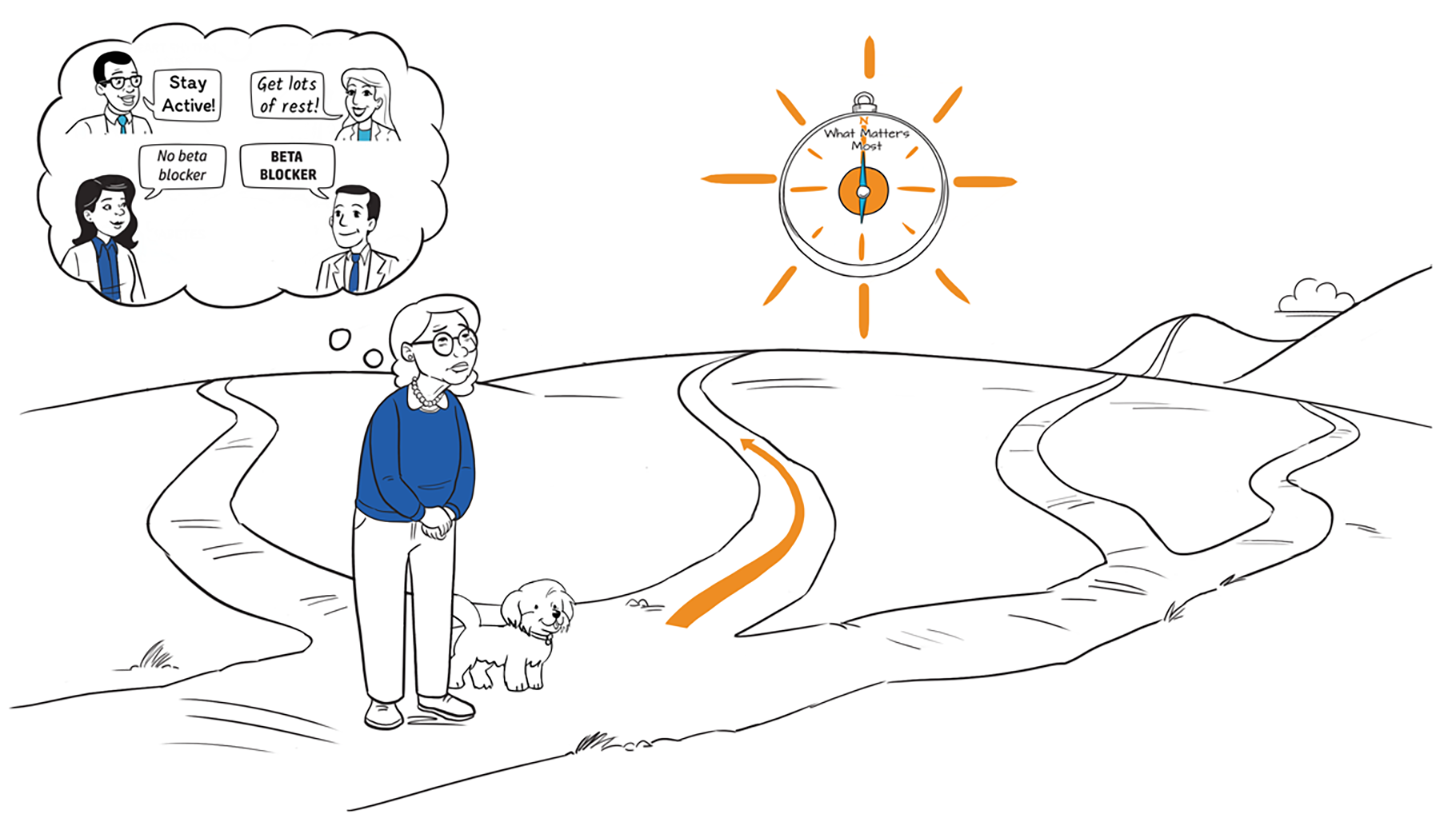
[ad_1]
April 16 is National Healthcare Decisions Day. The day exists “to inspire, educate and empower the public and health professionals about the importance of advance care planning,” or making ready for future selections about your medical care if you happen to grow to be significantly in poor health or unable to speak your needs.
In this Q&A, I spoke with Mary E. Tinetti, MD, Gladys Phillips Crofoot Professor of Medicine (Geriatrics) and co-creator of Patient Priorities Care, to debate ageing and the way she is reimagining how advanced well being care selections are being made. She additionally shares how she has utilized her experience to assist her personal dad and mom make well being care selections.
Q: There’s a prevalent stigma towards ageing in our society. Many individuals don’t need to take into consideration getting older, not to mention put together for future well being care selections. What can we do to get that perspective to shift?
A: Take any judgment away from being older. Yes, you possibly can spotlight the optimistic components of ageing—the knowledge that comes with it, the sentiments of accomplishment, the extra adaptable you grow to be—however actually, there are good and unhealthy issues in each a part of life. Aging is simply what occurs if individuals have the great fortune of dwelling lengthy sufficient.
Q: What does National Healthcare Decisions Day imply to you?
A: I imagine the day started to make individuals conscious of how necessary it’s to consider superior care, or what they might need sooner or later, and determine somebody they belief to assist them with resolution once they’re unable to make them by themselves.
I’d like for individuals to grow to be more and more conscious of what issues to them immediately. It’s arduous to resolve what you’ll need tomorrow since you don’t know what the scenario goes to be tomorrow. There’s a lot extra we are able to do by way of well being care—we’re nice at making new advances however not so nice at figuring out what’s most applicable for particular person individuals. That can solely occur if persons are conscious of what issues most to them as a result of there’ll at all times be tradeoffs, which occurs when somebody must stability the advantages and burdens of care or selection between the outcomes they worth most. I want to see National Healthcare Decisions Day focus as a lot on immediately as tomorrow.
Q: You’re the co-creator of Patient Priorities Care, an strategy to care that helps sufferers and care companions focus decision-making on what issues most: sufferers’ personal well being priorities. Where did the concept for Patient Priorities Care come from?
A: Through my observations from taking good care of older adults with a number of continual circumstances and sophisticated life tales for many years, it grew to become clear that the way in which we make selections about every situation in isolation and deal with them independently did not make numerous sense. It worsens the complexity for patients and health professionals rather than simplifying—managing each condition separately puts burdens on people from treatments that may not be very beneficial. It seemed like there was a better way.
Around the same time, the area of multiple chronic conditions was emerging. So much of research up until probably the 2000s was disease-focused, even in geriatrics. Amy Berman from The John A. Hartford Foundation approached me to ask if I would lead efforts to focus on primary and specialty care as it related to older adults. Patient Priorities Care was built on the idea that disease by disease guideline-based care may not be best for people who have multiple chronic conditions. Emergent work from researchers like my colleague, Terri Fried, MD, Humana Foundation Professor of Medicine (Geriatrics), who discovered that older adults with extreme and superior circumstances different in what they wished from their well being care, additionally shaped the inspiration. Everybody did not need the identical factor.
It grew to become clear that the way in which we make selections about every situation in isolation and deal with them independently did not make numerous sense. It worsens the complexity.
Mary Tinetti
I believed, “Okay, if we’re not sure whether there’s one right answer or whether disease-based care alone worked and there were a lot of other things besides diseases that were getting in the way of what mattered to people and people varied in what mattered to them, then what is the logical solution?”
Ask individuals what issues to them about their well being and make your selections based mostly on it. That was the evolution of Patient Priorities Care. Dozens of individuals weighed in on it. That’s it at its core; that is the way it got here to be. That was in about 2013.
Q: Have you personally seen members of the family, pals, or anybody in your life battle with making well being care selections?
A: Yes, with each of my dad and mom. My mom had a number of circumstances and was getting frail. She had unhealthy coronary heart failure, extreme spinal stenosis—again ache that made it troublesome for her to get round—and she or he was having increasingly hospitalizations and was much less in a position to do the issues she wished to do. My father was offering increasingly care.
It was about six o’clock one morning in I imagine 2004. I had gone to Flint, Mich. to go to along with her within the hospital. I used to be planning to fly out, and I discovered her mendacity in mattress wanting breath. It was clear that her coronary heart failure was worse, in order that was straightforward to deal with— the physician ordered extra Lasix, and she or he was higher. But then she stated to me, “Honey, I don’t ever want to come back to the hospital again.” She was clear that what mattered most to her was for the time she had left, she wished to be residence. So, we had been in a position to make that occur for 3 years with great assist from residence hospice, her main physician, and most significantly, my father.
With my father, it was a bit of tougher. He was truly very wholesome; he took care of my mom splendidly. In truth, he died final July on the age of 100. He was much less clear about what he wished. He knew he did not need to go to the hospital, and he actually did not need to get numerous well being care. But he wasn’t fairly certain what he was prepared to do for a few of his ache and different points. Despite that, I used to be nonetheless in a position to stroll him by means of the well being priorities identification course of, and he by no means went to the hospital once more both. To me, it’s a hit story—neither of them spent any of their final years within the hospital.
Q: Why is it necessary for sufferers with a number of continual circumstances to be empowered of their well being care selections?
A: Most individuals who get to age 65 or 70 and many individuals youthful than that, are going to have a number of continual circumstances. They could also be dwelling it, however they actually have not thought in regards to the implications that has.
You’re the knowledgeable in what issues most to you, and your clinicians are the consultants in how that will help you get there. We all need to dwell so long as doable, to not should work at it, to be utterly practical and haven’t any discomfort. That would not occur. There are tradeoffs, and solely you possibly can know what issues most to you within the face of these tradeoffs. If persons are unaware of what they need and what they’re prepared to do, they’ll get care they don’t need.
Especially as well being care has gotten extra fragmented and you are going to increasingly clinicians, you do not know whether or not you may be seeing the identical particular person each time. it’s much more necessary that every particular person is answerable for and communicates their very own priorities. It improves your relationship with clinicians, too. Some individuals suppose their clinician is aware of what issues to them, in order that they marvel why they need to have to inform them. While they might know rather a lot about you, they do not know what issues most to you within the face of a tradeoff. The extra they know, the extra they may help you make the appropriate resolution for you.
Q: How you’d suggest a affected person carry up Patient Priorities Care to their well being care crew?
A: If they’ve entry to a pc, go to MyHealthPriorities.org. It’s a scientific manner that will help you determine what issues most to you about your well being and your well being care, and on the finish of it, there are some tips about how one can talk that together with your clinician. If you don’t love to do issues on the pc, there’s additionally a printable version.
The extra particular you’re about what you need, the better it’s in your clinicians to make use of that data and make selections with you. Don’t be afraid about bringing it up as a result of clinicians do care about what you must say.
Patient Priorities Care (PPC) provides evidence-based instruments and assets to assist sufferers, care companions, and clinicians focus decision-making and well being care on what Matters Most: sufferers’ personal well being priorities. Patient Priorities Care is appropriate for any affected person, however particularly older adults managing a number of continual circumstances. PPC is a Yale analysis mission from the Department of Internal Medicine’s Section of Geriatrics, led by co-creator Mary Tinetti, MD, who’s the principal investigator on the analysis grant. PPC is now focusing efforts on spreading consciousness and coaching clinicians throughout the U.S.
[adinserter block=”4″]
[ad_2]
Source link

